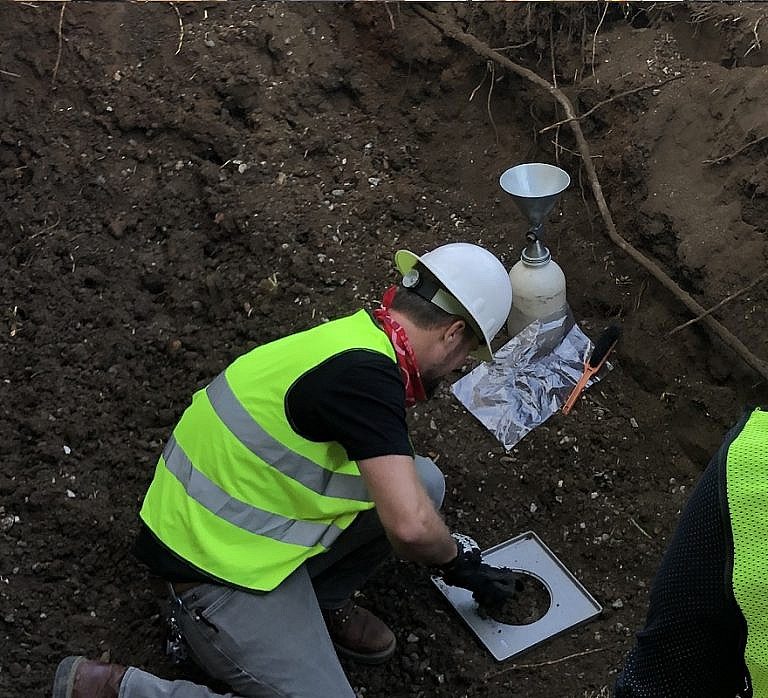Consistency
The term “Consistency” in the fields of engineering geology and geotechnical engineering means the degree of adhesion between soil particles within a sample, that are observed to resist deformation or rupture.
The term “Consistency” in the fields of engineering geology and geotechnical engineering means the degree of adhesion between soil particles within a sample, that are observed to resist deformation or rupture.

Soil Compaction Testing or Soil Density Testing Soil compaction testing, or soil density testing, is the process by which the density property of a soil mass is increased in the field by various means, and monitored by a professional geologist in accordance with local building department specifications. During the placement of engineered backfill material, density…

Critical Void Ratio The “Critical Void Ratio,” in soil science and geology, represents the final void ratio of a soil sample, at ultimate strength. And Critical Void Ratio is achieved by the loose and dense samples of the same soil post-shearing.

Settlement Definition In the field of geology, The term settlement means a gradual downward movement of the ground surface. This is generally due to soil compression at on a larger scale, atdepths that are below the ground surface.

Fault Creep Fault Creep: Fault creep means slow ground displacement of a strike-slip fault or dip-slip fault, that usually occurs without accompanying earthquakes. Fault creep can derive from tectonic activity, or be the result of excessive petroleum and groundwater pumping.

Perforated Horizontal Pipe in Methane Mitigation Perforated Horizontal Pipe: As per the Los Angeles Department of Building and Safety (LADBS) Methane Code, Ordinance Number 175790, a perforated horizontal pipe is a PVC or ABS pipe that contains a series of small holes or narrow openings placed equidistantly along the length of the pipe, and is…

Alquist-Priolo Earthquake Fault Zoning Act Alquist-Priolo Earthquake Fault Zoning Act: The Alquist-Priolo Earthquake Fault Zoning Act is a law that assists geologists to define “active faults” versus “potentially active faults.” The process entails using the same aging criteria as the United States Geological Survey (USGS) and the California Geological Survey (CGS). In fact, California policy requires…